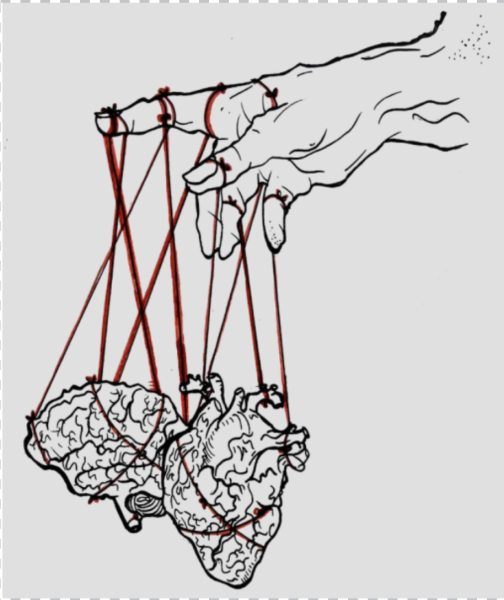It’s All Subject-ive
Year 11 subject choices should be simple in theory, however, there has been a whole range of experiences, good and bad, involving the choices for this year’s year 11’s. While some may blame the individual student for the difficulties they face, we believe the system can be improved to further support the students in making their choices. It is true that certain students are disorganised or are unsure of the future, but the system that has been set in place does not always make it easier.
One of the biggest frustrations that students have expressed is that it can be very difficult to connect the subjects offered at ISL to university requirements and future careers. For university courses especially, it can be very challenging to find a list of the exact subjects a course requires. We then also face the complexity of variation between countries and varying application systems which is unavoidable when applying for courses internationally. From a student’s perspective, it would be ideal for the university to state exactly which IB subjects are needed or are advised for a course. Not all do! This makes the process complicated. When you then add the million different opinions from parents, peers, teachers and counsellors on what subjects are best to take, it leads to a stressful decision making process. The best option for students would be to hear straight from the source: the university. Unfortunately, the elaborateness of choosing when faced with all these competing opinions and requirements can leave students puzzled and ultimately stressed.
Another major struggle students can face is a lack of focus on particular subjects they are interested in. Students felt that a lot of the school’s focus is put on informing students of the STEM subjects rather than, for example, the humanities and arts subjects. Though brief introductory videos are available, these were very general and do not dig deeper into the details of what would be learnt in the IB. Additionally, most non-STEM subject teachers did not have the opportunity for a follow up in class or to have further discussion with the interested students. The focus seems to be on getting individual sign off from maths, science and language teachers. This leaves students feeling like they are encouraged to take STEM subjects, to the detriment of the humanities and arts subjects.
At ISL, we additionally have the situation where humanities subjects are still grouped together in year 11. This leaves many students unsure whether “economics”, “global politics”, “history”, and “ESS” are really the subjects that they would enjoy the most for IB and whether they would do well in them. Within the individual units of Year 11 Humanities, there is a complete mix of different subjects within units so there is really no way for students to know which individual subject is best. This instils the fear that they won’t like the subject they have chosen in students.
To illustrate the situation, here is an example of the decision making process of an individual student, who wished to remain anonymous, on their subject choices for the upcoming year.
The student begins by outlining the difficulties in determining the requirements for universities. They tell us how challenging it is to navigate universities’ websites and how frequently it is unclear which subjects they specifically require. The student then explains the individual country in which you wish to study can also play a major role. For example, not all subjects are recognized in countries such as Switzerland or the Netherlands and so it becomes important to already know which country you want to study in.
A recommendation from the student for future year 11’s should already begin to conduct their own research as to which universities internationally offer the course you may be interested in and what the subject requirements are for that course before talking to the academic counsellor. A great tip the student offers is that ‘if the subject requirements aren’t clear, don’t hesitate to send the university an email because they always respond with a clear answer.’
Furthermore, the student also emphasises the value of consulting your subject teacher if you are unsure whether you should enrol in their class for IB because they offer excellent insight into what will be covered in the course and whether you as a student will succeed or not. It is important to take that initiative yourself when the opportunity does not automatically present itself.
Finally, the student finishes the interview by explaining how speaking to students in years 12 and 13 is extremely helpful, as they underwent the same exact process and give an honest account of what subjects they regret choosing and those they are enjoying. Seek out individual conversations with individual students or approach the subject teacher on who would be good to speak with.
In conclusion, we recognize that there have been difficulties for some students in choosing their IB subjects this year. Our year 11 students also do believe, however, that they have some solutions to offer. They believe it is critical to begin to research university courses and have conversations individually with older students about subjects before the counsellors and teachers’ presentation regarding subject choices. This enables you to already begin to think of your important questions and really target the individual subject teachers that you wish to speak to. An important step ISL could take would be to already split the humanities subjects in year 10 to allow students to experience all subjects as they do with the sciences. There should also be a drive to provide more opportunity to promote the humanities subjects and encourage sign offs and discussions with teachers in the humanities department and not just those of the STEM and language subjects.
Let’s continue the good work to support our students in making these difficult choices and continue to improve the process and minimise the stress of it for our current year 10’s.
Hi! My name is Saoirse, I am deputy editor for The High and I am currently in Y12. I like writing about important issues in the world, school and things...
Hi, my name is Chloe and I'm in Year 11. I'm from Switzerland and America. I've been at ISL for twelve years, but this is my second year in The High. I...



